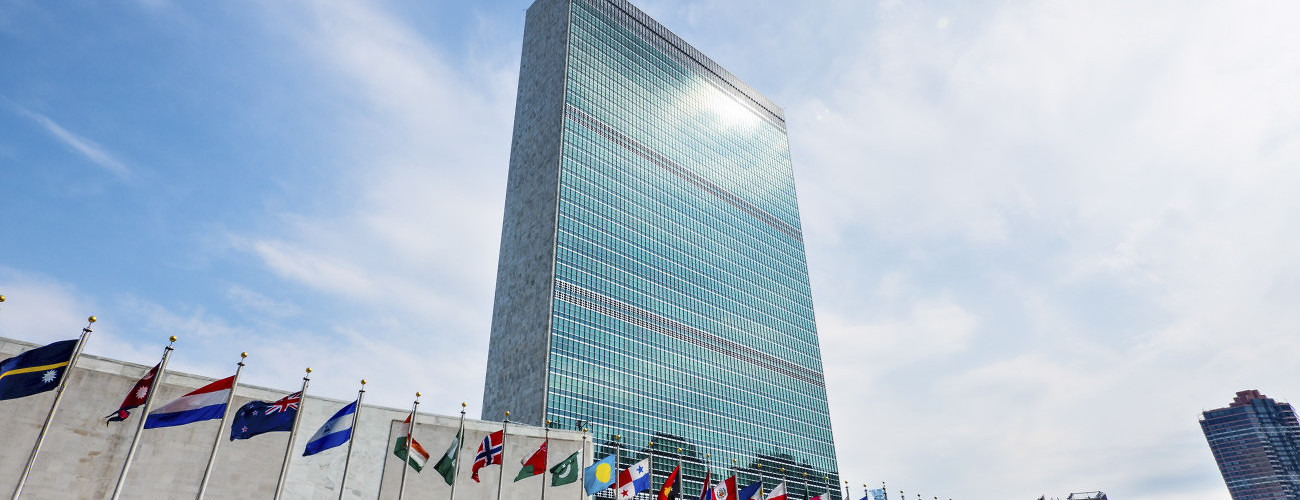UN headquarters in New York City, USA, August 21, 2014. (iStockphoto)
As the United Nations celebrates is seventieth anniversary, the organization faces growing systemic stresses placed on it by emerging global challenges and rapidly shifting political and security dynamics. Such challenges have sparked a renewed interest in reform.
The latest report by IPI examines past initiatives for change within the UN, as well as obstacles to reforms and their implementation. The report illustrates examples of successful processes of institutional transformation and highlights six waves of UN reform that have occurred since the end of the Cold War, including Secretary-General Ban Ki-moon’s Change Plan of 2011.
By presenting research on how reforms were managed in the past and the reasons for their success or failure, the report detects the challenges and opportunities for effectively managing change at the UN. This is particularly relevant at a time when the system has undergone a series of major policy reviews that have produced a host of recommendations for reform. The report argues for a model of continuous improvement, rather than one specific institutional change or new process, and offers a number of recommendations to manage reform effectively at the UN:
- Clarify the vision for the Secretariat: Change requires a clearly articulated strategic vision from the secretary-general.
- Encourage support from member states: The secretary-general and other senior officials should engage member states in building a rationale for reform, as well as in developing concrete proposals. Tracking and making use of member states’ interests can help the Secretariat push a reform agenda.
- Involve the General Assembly: The General Assembly, through its president, should be an ally of the Secretariat in building consensus among member states, given the critical role of the Fifth Committee.
- Establish buy-in of the Secretariat: For reforms to be implemented, the buy-in of the Secretariat is needed from the early stages of
- Engage staff unions: Engagement of the various staff unions is important, as they have direct lines to member states and are given a voice in committee sessions on issues that involve staff.
- Ground high-level panels in political realities: Blue-ribbon panels composed of former statespersons and experts must remain sensitive to political context to avoid producing wish lists that have no practical potential for implementation.
- Test ideas and launch trial balloons: The use of unofficial white papers and speeches by both the secretary-general and senior officials should be used more often as they have proven to be a successful means of testing ideas. Using the “third UN” of think tanks, academic institutions, and civil society fora to float ideas should also be tried more often.
- Follow the appropriate legislative process and work through the debates in the Fifth Committee: Specific mandates should respond to the General Assembly’s role in the oversight of the management and administration of the organization. The Fifth Committee should only receive proposals once they have been fully authorized by a relevant General Assembly resolution.








